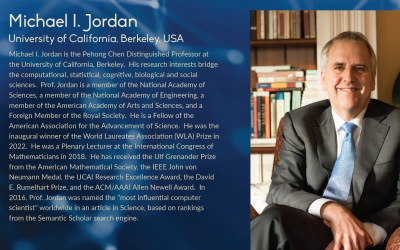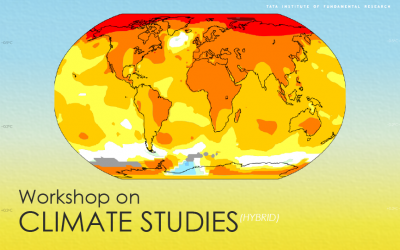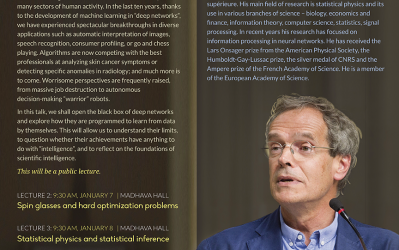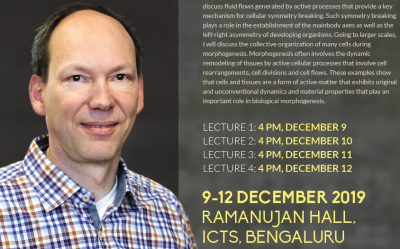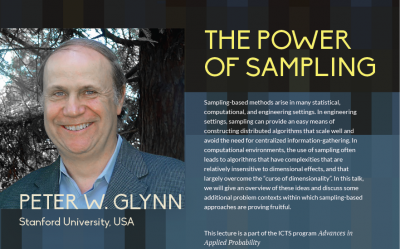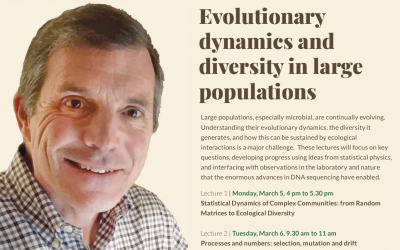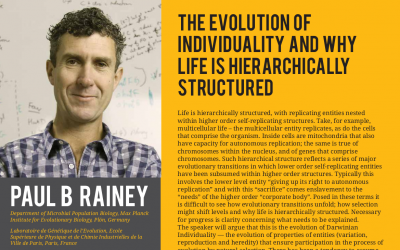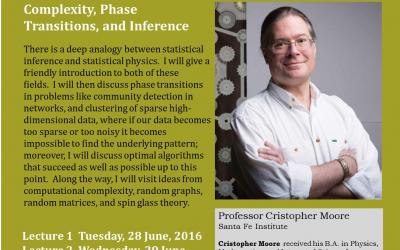Andrea Montanari (Stanford University, USA)
11 August 2025, 16:30 to 17:30
Ramanujan lecture hall, ICTS - TIFR, Bengaluru, India
Lecture 1 (Public lecture): The mathematics of large machine learning models Date and Time : Monday, 11 August 2025, 16:30 to 17:30 Lecture 2 : Overparametrized models: linear theory and its limits Date and Time : Tuesday, 12 August 2025, 11:15 to 12:30 Lecture 3 : Dynamical phenomena in nonlinear...more




